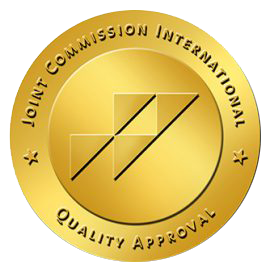Artificial intelligence – AI in the screening & diagnosis of cancer at MLHUMC
AstraZeneca and Mount Lebanon Hospital University Medical Center pilot use of artificial
intelligence for early lung cancer detection
Mount Lebanon Hospital University Medical Center is piloting a study on the use of artificial intelligence to enhance early-stage diagnosis of lung cancer, improve management and reduce mortality rates.
Lung cancer is the leading cause of cancer deaths worldwide and is recognized to carry a high symptom burden with associated lower quality of life compared with other cancers.
An estimated 1.8 million people die of lung cancer around the world each year, and about 80% of lung cancer diagnoses are late stage with less than 5% survival rates.
Recognising the need for early detection, AstraZeneca has launched a series of initiatives to pilot the use of artificial intelligence as part of a global study to detect lung cancer earlier and save lives.
AstraZeneca is working with Qure.ai to explore the application of deep learning algorithms on a high number of Chest X-Rays in order to identify patients with suspicious radiographic lung abnormalities, flag them and prioritize them for radiologists and support their referral for further evaluation thus enabling early diagnosis.
Qure.ai’s deep learning algorithm-based technology offers the potential to provide clinicians with faster, more accurate diagnoses based on routine chest X-rays, thereby improving outcomes for patients.
Mount Lebanon Hospital University Medical Center is a leading center of excellence in cancer care in Lebanon and the Middle East. It holds an important database of Oncology Medical Records and state of the art Radiation Oncology Therapy platform for treatment.
Leave a reply Mount Lebanon Hospital University Medical Center is piloting a study on the use of artificial intelligence to enhance early-stage diagnosis of lung cancer, improve management and reduce mortality rates.
Lung cancer is the leading cause of cancer deaths worldwide and is recognized to carry a high symptom burden with associated lower quality of life compared with other cancers.
An estimated 1.8 million people die of lung cancer around the world each year, and about 80% of lung cancer diagnoses are late stage with less than 5% survival rates.
Recognising the need for early detection, AstraZeneca has launched a series of initiatives to pilot the use of artificial intelligence as part of a global study to detect lung cancer earlier and save lives.
AstraZeneca is working with Qure.ai to explore the application of deep learning algorithms on a high number of Chest X-Rays in order to identify patients with suspicious radiographic lung abnormalities, flag them and prioritize them for radiologists and support their referral for further evaluation thus enabling early diagnosis.
Qure.ai’s deep learning algorithm-based technology offers the potential to provide clinicians with faster, more accurate diagnoses based on routine chest X-rays, thereby improving outcomes for patients.
Mount Lebanon Hospital University Medical Center is a leading center of excellence in cancer care in Lebanon and the Middle East. It holds an important database of Oncology Medical Records and state of the art Radiation Oncology Therapy platform for treatment.







